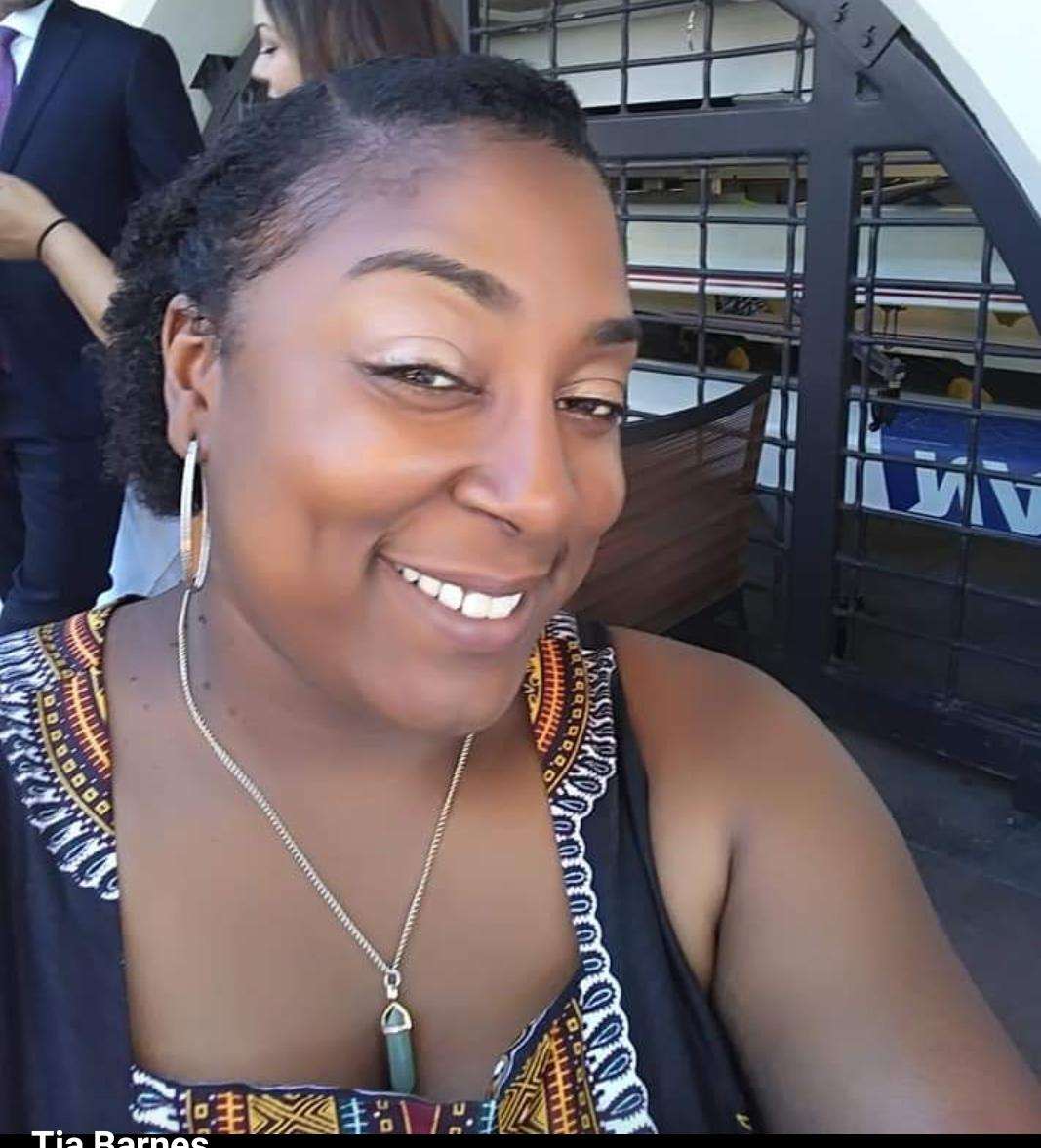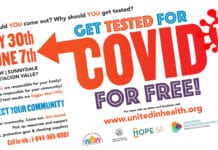
by JR Valrey, The Black New World Journalists Society
The coronavirus pandemic and quarantine has created a massive mental health challenge to an already terribly inadequate mental health system that has been teetering on collapse in the Black community since mental health became a science in this country.
With Black people being infected and dying from the coronavirus or complications related to it in mass all around the nation, unemployment approaching levels not seen in this country since the Depression, local governments enforcing shelter in place policies, school as we know it cancelled, children being forced to participate in computer-schooling for a number of hours a day without any physical activities or social time, 45 percent of Black business expected to close in the next six months nationally in response to the quarantine induced lack of capital and the new COVID-19 business guidelines, there is a long road ahead, and this is just the beginning. During these times, there is a lot for Black people to be in distress about.
Meet Tia Barnes. She is a marriage and family therapist who has been in practice for 3 years and owns her own private practice, while also working at Dolan Mental Health in Oakland. She also presently runs the re-entry program at the College of Alameda and is a therapist and social worker at the AIDS Project of the Eastbay.
A study, titled “The Color of Coronavirus: COVID-19 Deaths by Race and Ethnicity in the U.S.,” has revealed that 20,195 Black residents of the United States have died from the novel coronavirus in less than three months.
I wanted to talk to a Black mental health professional so that we as a community can start to wrap our minds around what is happening with us psychologically during the coronavirus pandemic, as we deal with already existing disparities compounded by uncertainty, mass unemployment, mass illness and death like we have never seen in this nation, especially during our lifetimes. Check out therapist Tia Barnes as she takes us on a bizarre ride through the far side of our mind.
JR Valrey: On May 25, 2020, the California Department of Health lifted the quarantine allowing a number of retail stores to open up, on the condition that businesses and customers follow the new COVID-19 guidelines. What are some of the psychological issues that society is going to be faced with now that a good number of the workforce is going back to work?
Tia Barnes: Due to the pandemic, many Americans are reporting significant increases in depression and anxiety symptoms related to the pandemic. Women, “minorities” and people with preexisting health conditions, including people under 34, are reporting higher rates of fear and anxiety. The number of people reporting these symptoms are well above our historical norms.
Spotting the symptoms of mental health issues could be especially challenging given the current environment of stay at home orders and physical distancing, which occurs and sets in somatically within your physical body and is palpable under the intense pressure or risk of losing a job, losing a family member, figuring out how to pay bills or even just being worried about your general health and the safety of everyone in your house. It creates a continuous worry and insecurity that can create or enhance mental health issues.
Studies show that 49 percent of people tested in April 2020 responded or showed levels of significant depression, as compared to a study also taken in 2006 where 37 percent of people showed symptoms of depression. It’s natural that when people perceive a threat that we go into our natural fight, flight or freeze response.
Many of us ran to the grocery stores to purchase items out of fear that there weren’t going to be enough items for us all to survive. Many people chose to ignore the virus or refuse to believe it was real and continued to engage in outdoor activities, and some experienced illness and death. Both instances create an unusual level of stress and worry that otherwise for some may not exist.
Any traumatic experience increases the level of depression, anxiety, worry and stress that a person experiences. If over time the symptoms go untreated, it increases the possibility of suicide, substance abuse and violence. Without treatment or intervention from mental health professionals, many people will be left to “manage” their symptoms on their own, which will correlate with the number of suicides, domestic violence cases and child abuse cases reported or determined after the COVID-19 pandemic quarantine.
M.O.I. JR: What kind of mental health issues will students be coming back to school with after being on quarantine? What kind of solutions would you propose to the school district?
. . . this very need for socialization in times of epidemic and pandemic viruses, creates the catalyst for disease transmission.
Tia Barnes: Human beings are innately social creatures. We are not meant to live in isolation or in a solitary place. We are meant to thrive and grow with other people and we have evidence that shows that separation from other people can be more harmful than positive to humans.
For a short period of time, isolation causes a limited number of issues for most people. However, over time, studies show that isolation can create long-term mental health issues that could disrupt the daily functioning of an individual.
It’s honestly this very need for socialization in times of epidemic and pandemic viruses, that creates the catalyst for disease transmission. The inherent need for socialization can be tied to a more positive meaningful experience for the person when gathering with groups of other people.
So it’s natural that when people can’t satisfy the need for social contact, many of us begin to feel an increase in stress, anxiety, loneliness and depression. The stress associated with these issues can create both long-term mental and physical health issues.
Any disruption to a child’s routine – their socialization, their schedule, their social and physical outlets such as sports, choir etc. – can lead to symptoms of anxiety and stress within our children. It will look like our children are not wanting to do chores, not physically or mentally capable of focusing during Zoom classes or outright refusing to participate.
Many parents have reported increased behavioral issues that have created the need for both family and individual therapy for everyone in the household. However, children are experiencing the same socialization issues. Some children may experience issues with transitioning back normally into society and choose to either seclude themselves in their room, not participate in school or church activities, and also practice self-isolation.
Black people are more at risk of experiencing mental health issues due to the lack of adequate resources historically. Lack of trust in our government and its president will continue to encourage the lack of trust in the medical community, which could have a grave impact on all communities of color, once a vaccine is discovered.
Black people have not forgotten Tuskegee and other experiments that keep us wary of trusting vaccinations for deadly diseases. This is learned hypervigilance to trauma. The fact that many of us don’t have adequate resources to trust that this is a pandemic is also creating a higher level of stress for people of color.
M.O.I. JR: Can you talk a little bit about the racial tension that you see that has been brought along by the pandemic? What is happening psychologically?
Tia Barnes: In my opinion, this pandemic has exposed the very layered systemic disparity between the privileged and the not so privileged in the United States. The United States has touted itself as being the land of the free, and we see during this pandemic that no one is “as free as we once thought we were.” We see the extremely privileged, the 1 percent, reacting because they feel their civil liberties are being stripped away when essentially the only experience they’re having is the lack of privilege to come and go as they please. They are simply not used to being denied. That is challenging their mental health and it is reflected in the number of protests, in the number of online ads, and the number of white women venting on social media about how unfair it is to wear a mask.
(The Black community’s) lack of access and resources directly correlates to overall lifespan and health outcomes and the death of many people who go untreated due to these circumstances. It exposes that our government is unconcerned that even though African Americans are only 12 percent of our U.S. population that we are over 45 percent of the number of deaths impacted by COVID-19. This pandemic is showing the United States of America’s torn draws.
JR Valrey: What kind of effect is the police terrorism and fear mongering over a span of months going to have on Black people psychologically who have been sheltering in place?
Tia Barnes: Well, not necessarily only in relation to fear mongering, but historically Black people in the United States have experienced a high level of trauma and depression, over several centuries of degradation and exploitation, which has created an epigenetic trauma within our culture. The idea is that trauma literally leaves a chemical mark on your DNA helix that has the ability to create a change in how we behave and respond to certain scenarios.
That change within our DNA not only impacts how we respond but can then be passed down to our children and to their children, creating a hypervigilance to scenarios that other people may not experience. For example, our reaction to law enforcement as opposed to those of another race is based on our experience; our hypervigilance predicates that we now know that for us police and law enforcement do not equate to safety.
. . . the disparity in healthcare and income can now be a determining factor in whether you live or die from this virus.
Our hypervigilance creates a fear that triggers a physical and emotional reaction that causes us to run, that causes us to sweat, that causes us to fight for the very life that we fear they may take. So when we look at fear and how it affects Black people psychologically, it literally attaches to the trauma that we already hold and it creates a propensity of issues which could include substance abuse, mental health issues, suicide and death.
JR Valrey: Has the rate of suicide increased or decreased in the Black community since the quarantine started?
Tia Barnes: Social and economic conditions that were long overlooked by our government and policy makers have created an environment in which the disparity in healthcare and income can now be a determining factor in whether you live or die from this virus.
Due to still being in the early stages of the virus, there haven’t been many studies completed that fully encompass the true impact of the pandemic on populations of color. Historically Black and Latino people have less than adequate resources and access to health care, which immediately puts us in a disparity for any disease or pandemic that may occur. All those studies have yet to reflect the impact on Black communities as it pertains to suicide, domestic violence, and sex trafficking. However, emerging studies show that throughout the nation there is evidence of an increase in the rate of suicide being attempted and reported.
And also keep in mind that this pandemic creates a perfect storm for those already impacted by socioeconomic differences. People who don’t have the ability to stay home due to the risk of losing their home or not being able to provide are thereby increasing their risk. People who are staying home who are used to socializing regularly, and cannot, experience a sense of depressive mood disorders which leads to an increased rate of suicide and suicide attempts.
JR Valrey: Has the rate of domestic violence increased?
Tia Barnes: Although we don’t have many evidence-based studies to rely on, we can infer that based on the amount of time people are currently spending within their homes with their spouses and children, there is insurmountably an increase or an uptick in people who are being victimized by domestic violence and also an uptick in child abuse. Several articles have mentioned the lack of reporting being done due to the fact that many domestic violence victims don’t have access to free time, which would enable them to call for help or support or find assistance to be removed from the situation.
Just as we see in instances where there’s fewer cases of child abuse being reported due to the lack of outside exposure to the child. When a child is not going to school or participating in activities, it becomes that much more difficult to determine if that child is being abused within the home.
JR Valrey: How will this pandemic’s extra push into the digital age affect people psychologically who don’t have access to computers and the internet or are not technologically savvy enough to use computer apps to access the necessities and the luxuries of life?
If there were ever a population of people who deserve to be mediated, soothed and made whole again, I feel that it is my people.
Tia Barnes: It becomes necessary for people to make significant adjustments with how they communicate with others in order to satiate their mental health needs. This becomes increasingly difficult for people who don’t have access to what many consider to be “societal norms” – wi-fi and an adequate phone – or they lack technical savvy. We see this impacted most in children and in elderly people who may not know how to navigate social media and other forms of communication.
JR Valrey: Can you tell me a little bit about your private practice?
Tia Barnes: I created my private practice, The Culture Collective, because I felt that our community was widely underrepresented in receiving mental health services, which I find astounding given our level of trauma and our experiences on this continent. If there were ever a population of people who deserve to be mediated, soothed and made whole again, I feel that it is my people. And out of that I created this agency to provide counseling, therapy and support to people who feel they sincerely have a need to be heard and seen and understood.
JR Valrey: How does this rampant police and white vigilante murder of Black people in recent times locally and nationally affect Black people psychologically, especially in a pandemic? In the mental health realm, what should we be doing?
Tia Barnes: In 2017, a Harvard team of researchers did a study on the impact of police brutality in African American communities and more specifically the impact of the murder of unarmed Black men within these communities. Data shows that Black people – even those with no direct involvement or personal connection – are overwhelmingly impacted for days and even months after the murders are committed by police.
This study specifically shows that the impact of police killings of unarmed Black victims only has an effect on African-Americans; no other ethnic groups reported similar stressors and concerns. This speaks towards the level of victimization and exposure that connects Black people to the current and historical prevalence of racism in America and its pathological impact on communities of color.
Black Americans will also develop acute mental health issues while trying to cope and understand crimes of this nature. Studies show a consistent increase in depression, attention disorders, sleep cycle issues and other psychological concerns that would cause individuals to perform sub-optimally at work and at school.
Black people are the only individuals who have to keep going as if nothing happened and perform to a capacity despite the feelings of grief and weariness. Adding to this fact is that many have to engage with peers and colleagues who are not Black, who have no understanding or concern for the current state of mind, grief or mourning being experienced by their Black colleagues.
Racial fatigue is real. In order to maintain and manage our mental health, we have to be vigilant about setting boundaries and removing ourselves from triggering situations, which can include social media, watching continuous news coverage, clips, arguments etc. This level of trauma only enhances the already hard felt stress of COVID-19 and, compounded with the fear, worry and anger felt due to these senseless murders, we can only hope that many of us find adequate mental health support in our local communities.
People can look for therapists on Psychology Today, as well as the Henson Foundation, which was recently opened by Taraji P. Henson to support Black people in finding and accessing therapy. The ultimate goal is to make sure that we don’t continue to push down and swallow our emotions.
Our resilience is a double edged sword as it pertains to our mental health. We have to be vigilant in acknowledging behavior or feelings that are out of the norm and impacting daily functioning and happiness. Find someone you trust, who can ensure the problems don’t worsen the issue and let it impact your family, friends and professional life.
JR Valrey: How can people contact you?
Tia Barnes: People can find me on Facebook at Tia Barnes, also https://tia-barnes.clientsecure.me or at 510-545-2834. They can email me at contacttiabarnes@gmail.com.
The People’s Minister of Information JR Valrey, journalist, author and filmmaker, can be reached at blockreportradio@gmail.com or on Facebook. Visit www.youtube.com/blockreporttv. All stories written about COVID-19 were partially made possible by the Akonadi Fund #SoLoveCanWin.

 Store
Store




